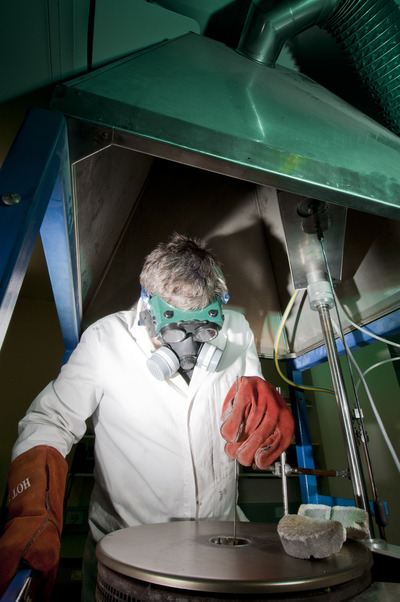CSIRO’s slag performance database: adding value to Australia’s coal resources
A growing international coal gasification market offers potential for coal deposits previously ranked of low value to become a highly marketable resource.
“Traditionally, coals have been selected for their tendency to not slag or foul boiler tubes in combustion power stations. However, with the gasification market, which relies heavily on a slagging coal, set to increase in the coming years, significant coal deposits are likely to become more marketable,” said Dr Alexander Ilyushechkin, Senior Research Scientist at CSIRO’s QCAT laboratories in Brisbane.
To help Australia’s coal industry take advantage of the growing international market for slagging coals, CSIRO has developed an experimental database and modelling toolkit that can be used to make assessments of the suitability of coals for their use in these gasification technologies.

“There are more than 130 gasification installations around the world using over 50 million tonnes of coal each year, and this capacity is set to grow by more than 70% in the next three years, according to estimates from the US Gasification Technologies Council,” said Dr Ilyushechkin.
“This provides a growing export potential for Australian coals, which will increase the value of the coal resource and extend the life of the mine.”
The largest application for these installations has been the production of chemicals, particularly in China, which has imported coals to fuel the increasing growth in demand.
There is, therefore, a significant opportunity for Australian coals to feature in international gasification projects, provided they can be shown to be suitable for these alternative utilisation technologies.
A recent study by CSIRO for the Australian National Low Emissions Coal Research and Development agency demonstrated that slags produced from gasification are well suited for use in product manufacturing, such as concrete production, and that their environmental impact in terms of leaching of heavy metals is insignificant.
CSIRO also has the capability to analyse and assess coal in terms of its slagging behaviour and assist coal producers in valuing their resources by appropriately matching them to different gasification technologies.
This relies on CSIRO’s database of coal slag viscosity, which is based on measurements of slag viscosity behaviour for several hundred different coals and artificial ashes. In conjunction with modelling tools, it can be used to estimate the likely behaviour of a particular fuel’s mineral matter under conditions relevant to all the leading gasification technologies.
These tools are supported by specialised laboratory facilities, allowing CSIRO to directly measure the viscosity of slags at temperatures up to 1600°C, providing an accurate insight into how the slag will behave in a gasifier, and identifying the underlying causes of any potentially problematic behaviour.
This is currently the best method for characterising slag flow behaviour, and for determining (if required) the optimum amount of flux that could be added to improve performance.
For information on how CSIRO’s database, modelling tools, and experimental facilities can be of use, please contact Alexander Ilyushechkin at CSIRO.
Australian Manufacturing Week 2025
Registration is now open for the biggest precision engineering manufacturing show ever held in...
2025 Thought Leaders: Martin Broglia
Martin Broglia of Bonfiglioli Australia and New Zealand discusses the business of sustainability...
Solar-powered desalination system requires no additional power
MIT engineers have built a new desalination system that runs with the rhythms of the sun.







